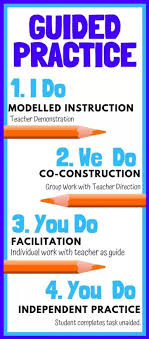1 March 2020

WoW: analogous
Communication Focuses
READING
- Reading Widely
- Reading for pleasure
WRITING
- Spelling of subject-specific vocabulary (tier 3)
- Use of WAGOLLs to scaffold (visualisers, mini-whiteboards)
ORACY
- Purposeful and structured communication with others
Teaching and Learning Priorities
- Climate for learning (DMC)
- Vocabulary (ACH)
- Purposeful Interactions by all (CRO)
This Week:
- Trainees – meetings Tuesday 1 (postponed) and Wednesday 1 (9.15).
- CPD on Wednesday at 3:15 in RLO/PWA’s office (JWI and PWA to lead)
- NQTs – RHU – Tuesday 4; JMJ Tuesday 3 (postponed).
- Heads up – Pastries and Progress next Wednesday – SLT to cover duties. JGA to provide input on Reciprocal Reading.
- Open Door Week – next week! Ask a colleague if you can drop in…or invite someone in. Be brave.
Reflect on Your Practice:
Teaching and Learning Policy: Feedback – Plan - Teach
As we continue to walk-through our Teaching and Learning Policy (Feedback – Plan – Teach), this week, we consider the ‘Teach’ element. This is what our policy says about ‘writing’. Most of us use the ‘I do – We do – You do’ method when completing exam answers or extended writing. The visualizers also facilitate this process.
Writing
‘I do; we do; you do’ or modelling is a key teaching strategy that, when coupled with high expectations, supports students to make maximum progress.
By using a metacognitive approach and explaining or demonstrating to students what is expected of them, students are better able to respond effectively to tasks.
It is particularly important that this strategy is used when expecting a student to complete any form of extended writing.
Prompts:
|
WRITING – BASICS@WLD Step 1: Look at similar texts and annotate key features. This becomes your success criteria. Step 2: I do – watch me write Step 3: We do – let’s write a section together (use the visualiser here) Step 4: You do – now it’s your turn Step 5: Let’s share our writing and evaluate the success criteria and what went well (the visualiser is useful for this stage, too) |
Use it!
Most classrooms have desk top computers and visualisers so exemplifying successful writing is simple. This piece of hardware must be used when possible and it is useful for the teacher to talk through choices when writing.
Top Tip Schedule
Subject Heads, please ensure that someone from your department is ready to share a ‘Top Tip’ on the designated date.
|
2/03/2020 |
The Arts |
|
9/03/2020 |
Pastries and Progress Open Door Week |
|
16/03/2020 |
Pastoral - PCs |
|
23/03/2020 |
English |
|
30/03/2020 |
Drama |
CPD Cascade
Study Groups 2019-20
A reminder of the key focuses within departments:
- Expressive Arts – improving engagement in Year 9
- Computing – Developing the use of Teams to allow learning beyond the classroom
- Mathematics – recall and retention
- Art – Engagement of boys
- English – use of knowledge organisers
- MFL – Speaking examination – extended pupil responses; Listening and reading: developing confidence
- Humanities - progress of middle attaining boys
- PE – Link between theory at KS3 and KS4
- Technology – Developing the use of homework at KS3 to prepare students for KS4 course
- Science – personalised learning plans for each student in each science.
CPD Audit
Many thanks for taking the time to complete the CPD audit. Feedback will follow shortly.
Next Week…
…is Open Door Week – I know that many of us are yet to embrace this (whether that is down to time or feeling embarrassed about walking in to another person’s classroom). Please have courage and drop in on someone. You will be inspired. To make it easier, ask someone if it is okay for you to drop in.
Posted by Rachel Long
Category: Teaching and Learning Digests
